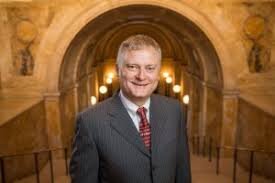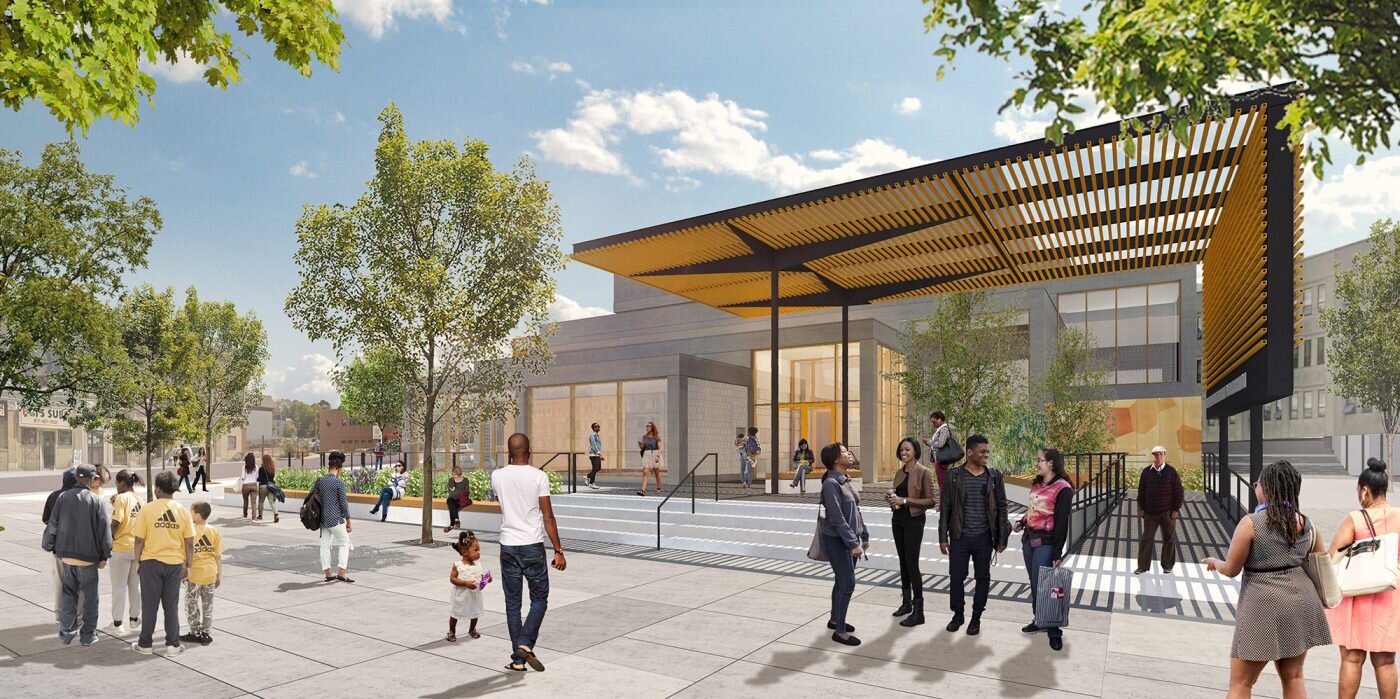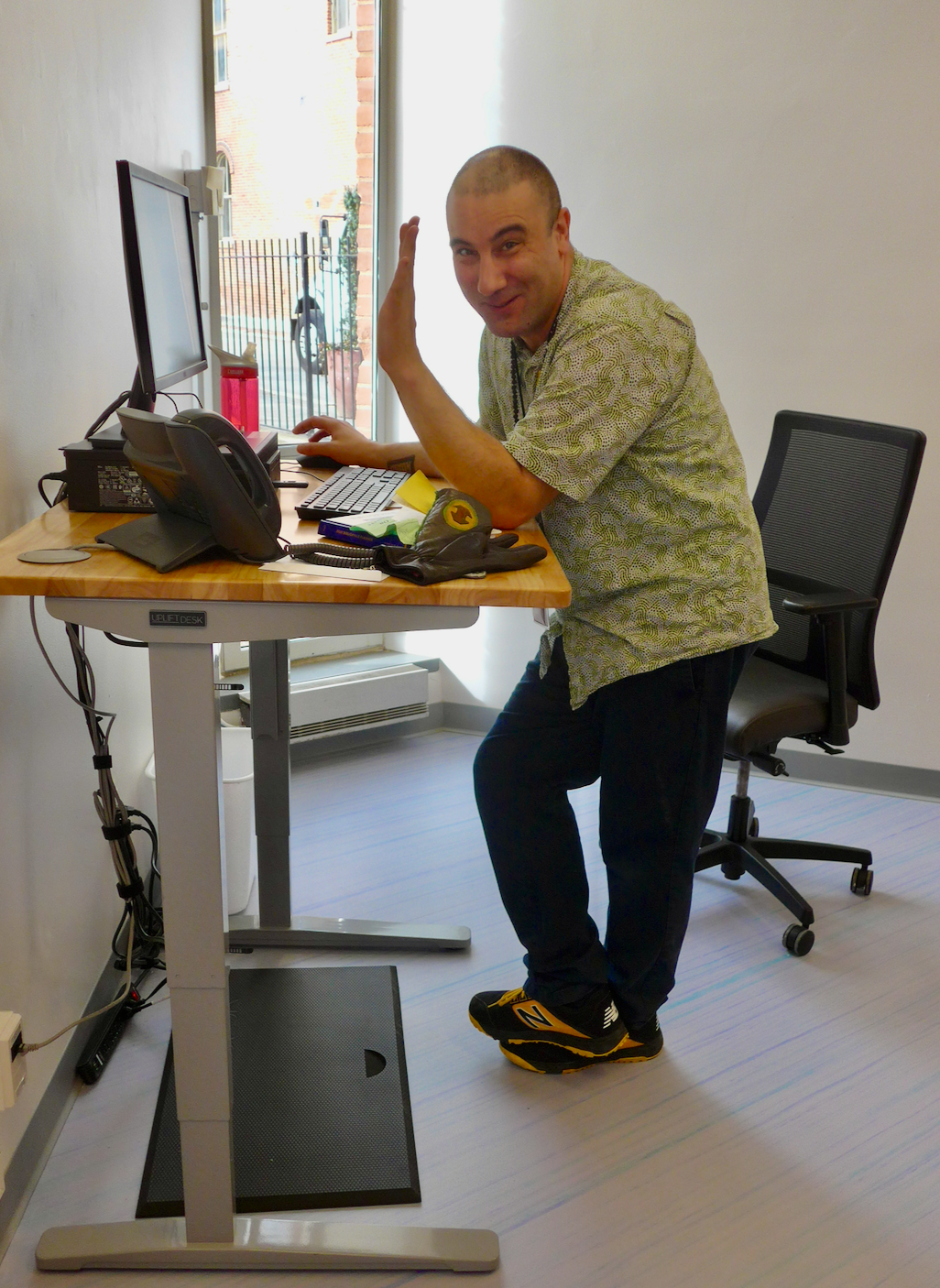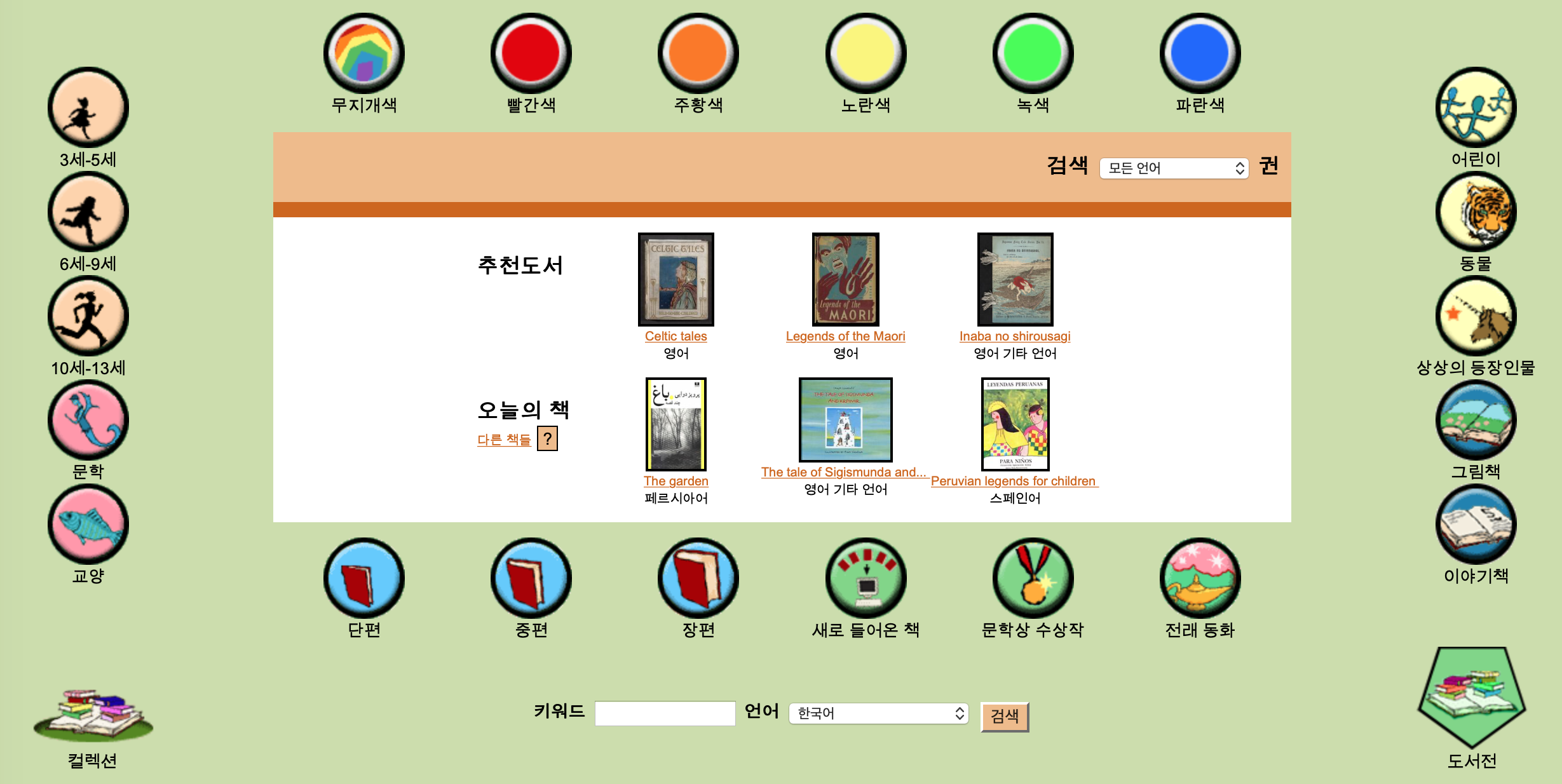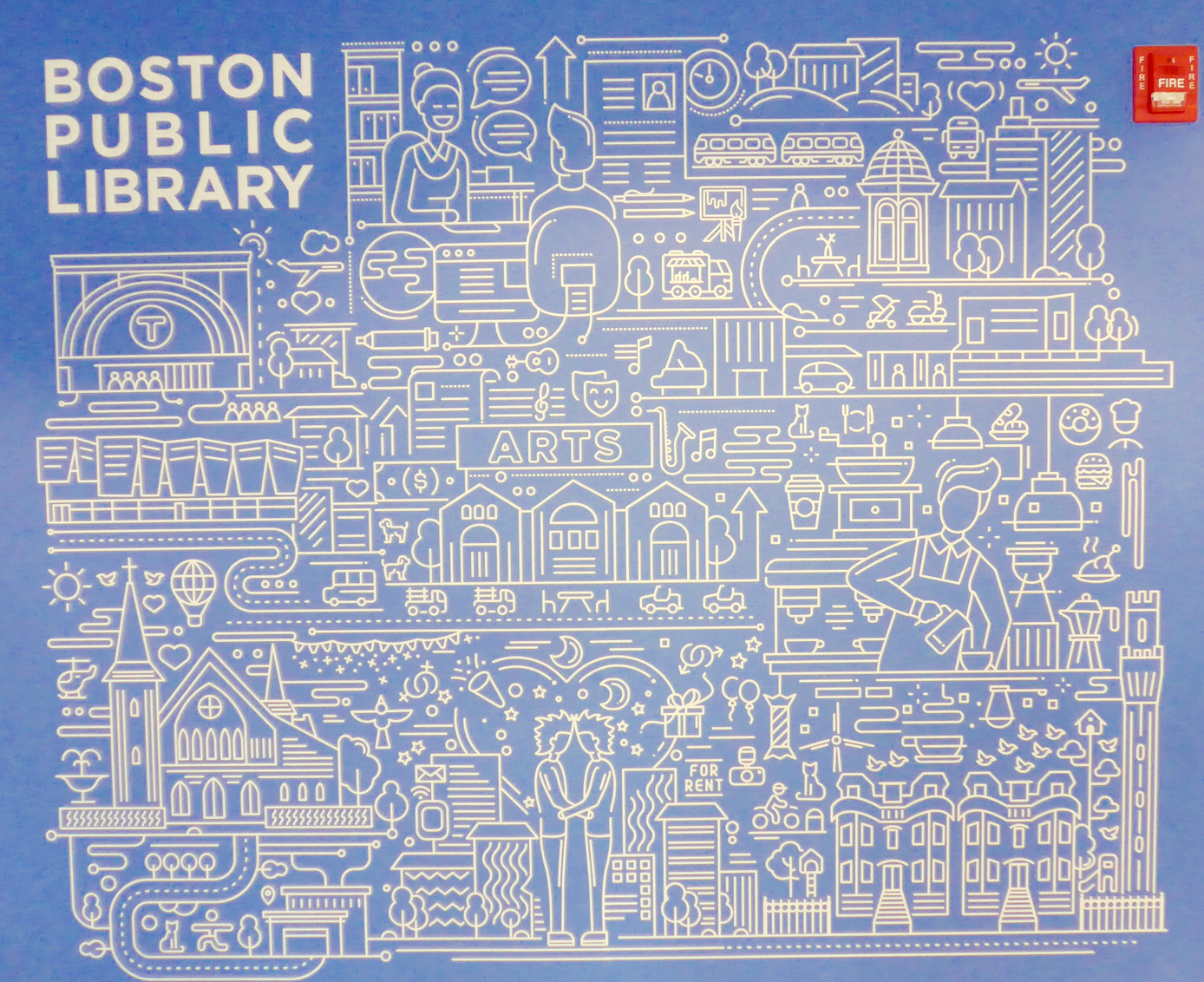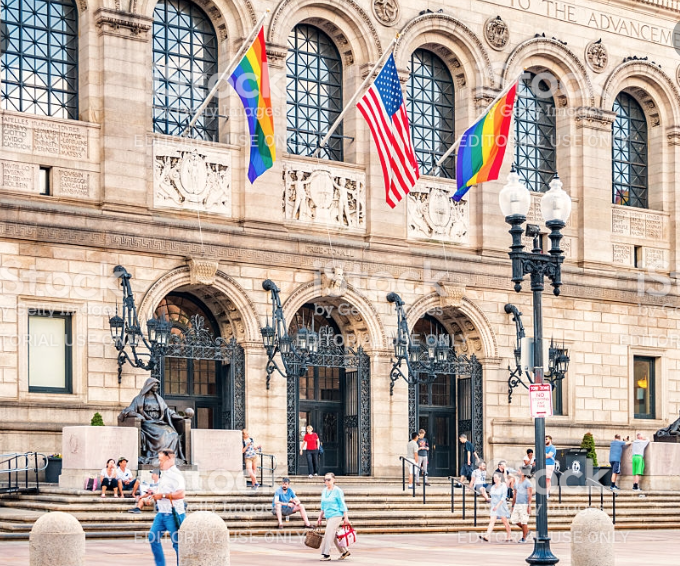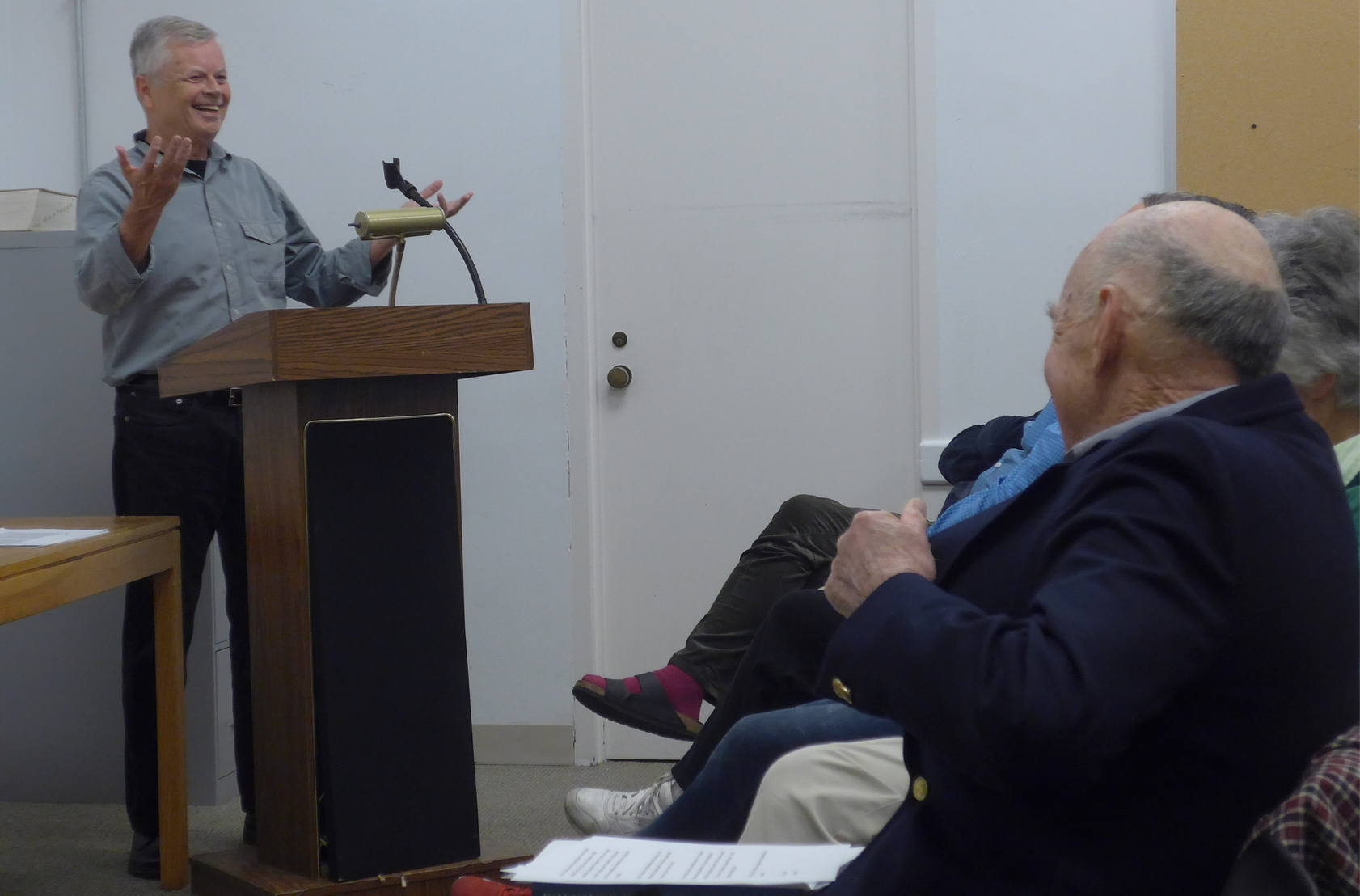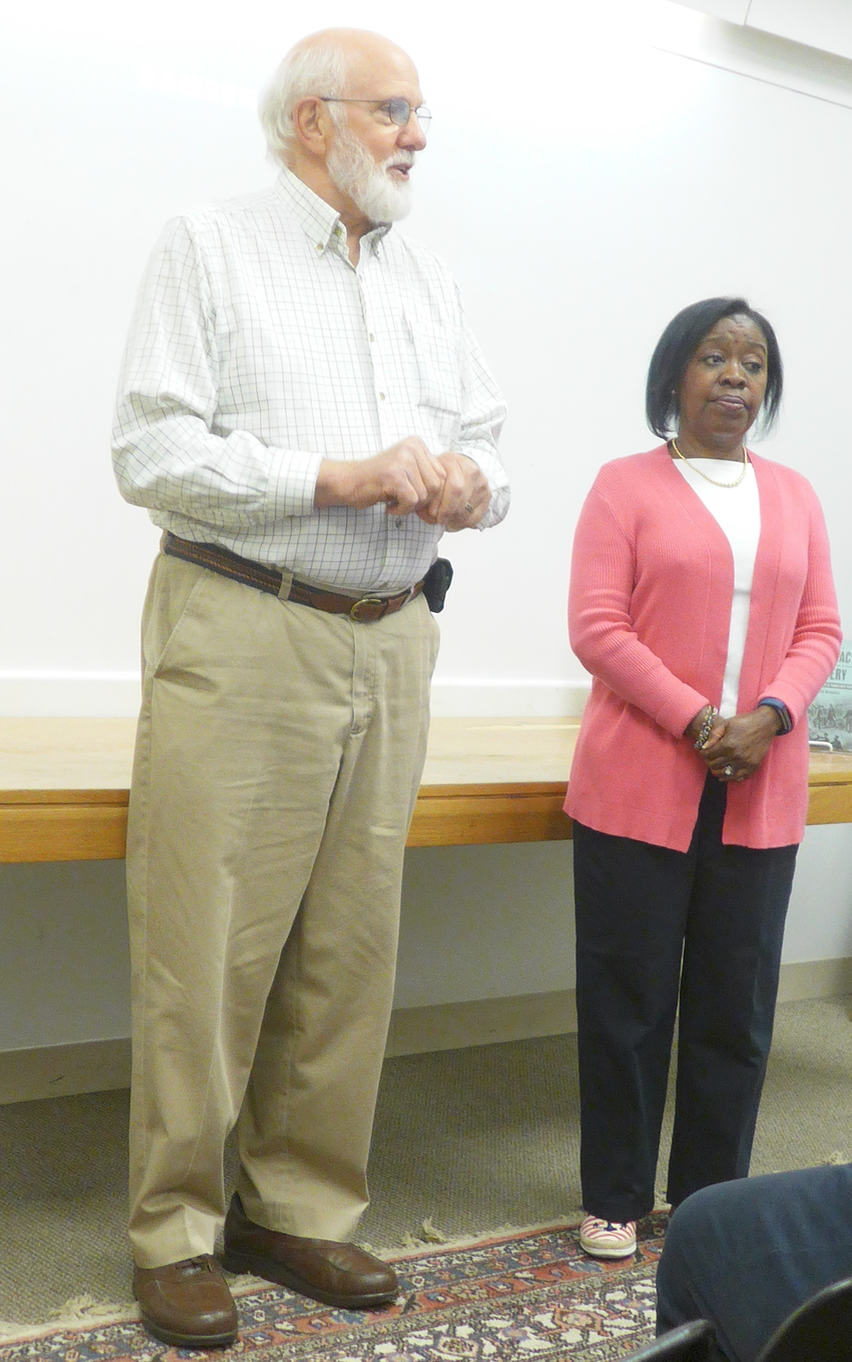FOSEL assistant Chris Fagg, Library Park regular Reggie, and volunteer Walter Newman planting spring bulbs in Library Park
At the end of October, a small group of Library Park aficionados chased away the pandemic and election-season blues by taking planting tools and 3,000 recently delivered ‘harbingers of spring’ to Library Park. Buffeted by cold weather, rain, high winds and three inches of the season’s first snow, they raked the leaves, removed the fallen branches, dug holes and planted until the last bulb was covered.
Hokus Crocus will spring into flower in early March 2021
Spanish Bluebells will be the ‘blue finale’ in June 2021
Big Up tulip blend will pop in May and June 2021
As in previous years, the choice of tulips, daffodils, grape hyacinths, crocuses and Spanish Bluebells was made based on a timed sequence of anticipated blooms, so that from March through June something will be in flower. Expect the blue-hued Hokus Crocus and Grape Hyacinth Muscari Latifolium, along with daffodil selections Gold Shoulder and Spring Loaded, to usher in the Spring in March and April, followed by two kinds of tulips - Big Ups and Twin Peeks - in April and May. More tulips -- Angeliques and French Blends -- will bloom in May and June, together with more blues and purples -- Grape Hyacinth Blend and Spanish Bluebells -- in June. Charm Offensive, Cheerfulness and other bulbs in the Spring Loaded daffodil blend will join the tulips in May and June.
Charm Offensive daffodils are scheduled to flower in May and June 2021
The final 500 bulbs were in the ground…
The new tradition of planting thousands of spring bulbs in Library Park began in the fall of 2018, when FOSEL learned that City funding for the Park’s re-design would exclude plantings. Rather than leave the Park’s garden with nothing to show for the makeover but a thin layer of brown mulch where plants used to be, FOSEL brought in the first load of 3,000 bulbs that fall and watched them bloom profusely in the spring of 2019. During that 2019 summer, with the help of South End State Reps., Jon Santiago and Aaron Michlewitz, FOSEL secured $25,000 for soil improvement, perennials, an irrigation system and new low-level interior fencing as well as exterior fence repair.
Another 3,000 bulbs were ordered and placed in the ground in the fall of 2019, which in 2020 provided much appreciated visual relief from the gloom of the pandemic that forced many South Enders to stay close to their homes. Subsequent Park improvements necessitated temporary removal of all plantings from the soil, including the bulbs. But the now-completed October project to replace them will ensure that the Park again comes alive with color and cheer in the Spring of 2021 and offers all passers a respite from the bleak, winter-beaten city streets.










